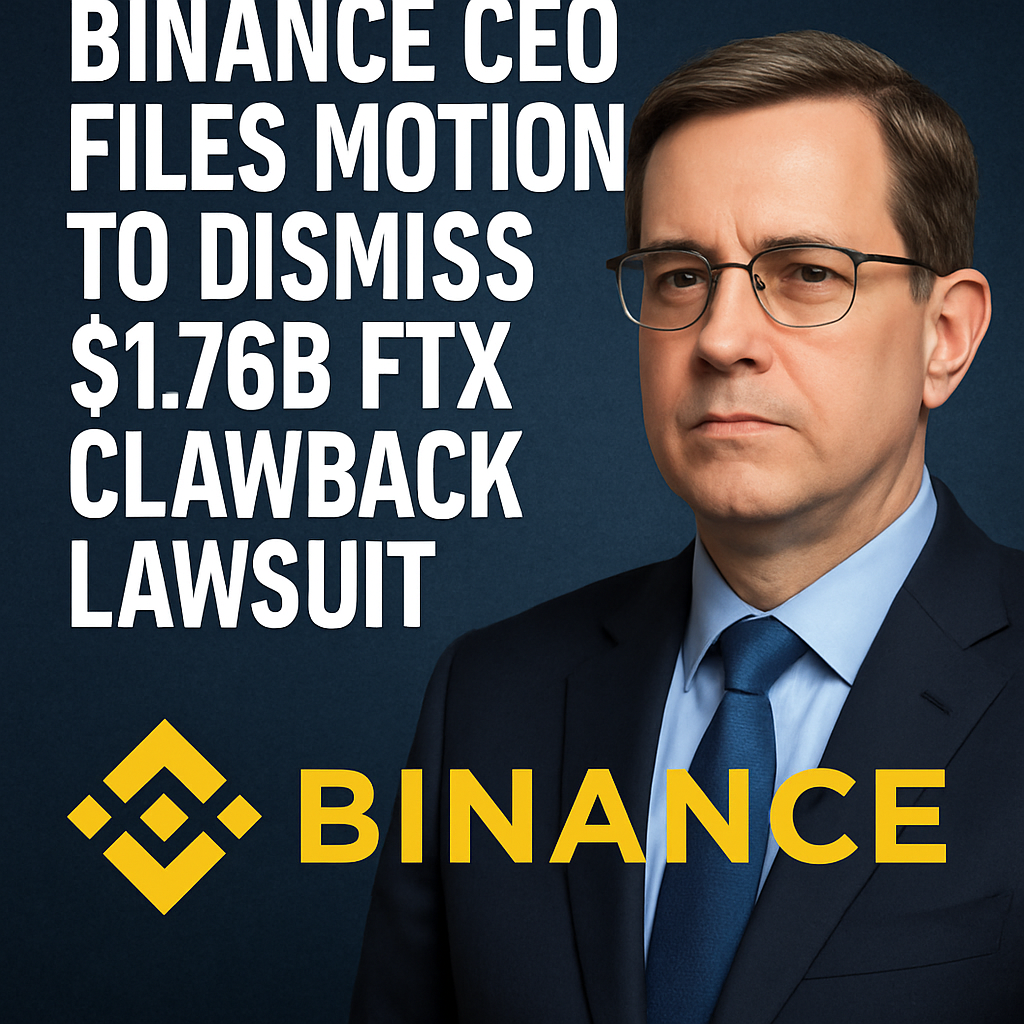On August 6, 2025, Changpeng Zhao, founder and former chief executive of Binance, filed a motion to dismiss a $1.76 billion clawback lawsuit brought by the FTX bankruptcy estate in a U.S. federal court. The lawsuit alleges that Zhao received transfers of customer funds from the collapsed FTX exchange that now constitute avoidable preferential and fraudulent transfers. Zhao’s motion contends that the trustee’s complaint fails to state a claim upon which relief can be granted and urges the court to dismiss the case for lack of proper legal basis.
The FTX bankruptcy, initiated in November 2022 following a liquidity crisis triggered by a rapid devaluation of the FTT token and mass withdrawals, led to bankruptcy filings for FTX Trading Ltd., Alameda Research, and over one hundred affiliated entities. Investigations by the chapter 11 trustee have sought to recover billions of dollars in transfers made by FTX in the days preceding its collapse. The estate’s avoidance claims leverage Sections 547 and 548 of the U.S. Bankruptcy Code, which permit recovery of transfers made on account of antecedent debt or with actual intent to hinder, delay, or defraud creditors.
Zhao’s legal team argues that the complained-of transfers represented ordinary market transactions in which Binance purchased FTT tokens at fair market value and provided liquidity to FTX’s exchange when it was solvent. The motion asserts that avoidance actions under the Bankruptcy Code require allegations of actual intent or circumstances demonstrating inequitable conduct, neither of which are sufficiently pled in the trustee’s complaint. The defense further contends that Binance lacked any knowledge of impending insolvency at the time of the token purchases, negating the requisite intent for fraudulent transfer claims.
Should the court grant the motion, the trustee’s ability to recover a significant portion of the estate’s remaining assets would be curtailed, potentially reducing distributions to creditors. If denied, the case will proceed to discovery, entailing extensive document review, depositions, and on-chain transaction analysis. Observers note that the outcome may establish precedent for how blockchain-based transactions are treated under U.S. bankruptcy law and could influence future litigation involving digital asset transfers.

Comments (0)